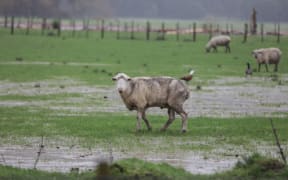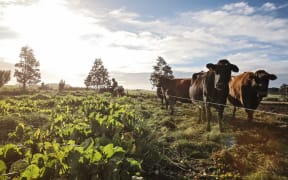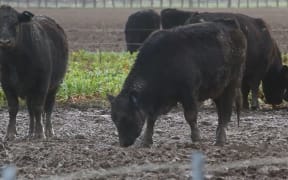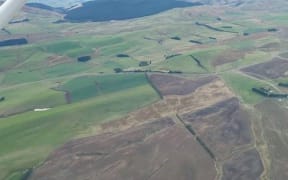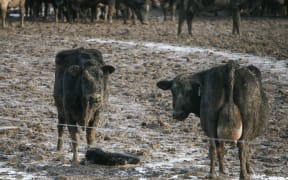By David Hill, Local Democracy Reporter
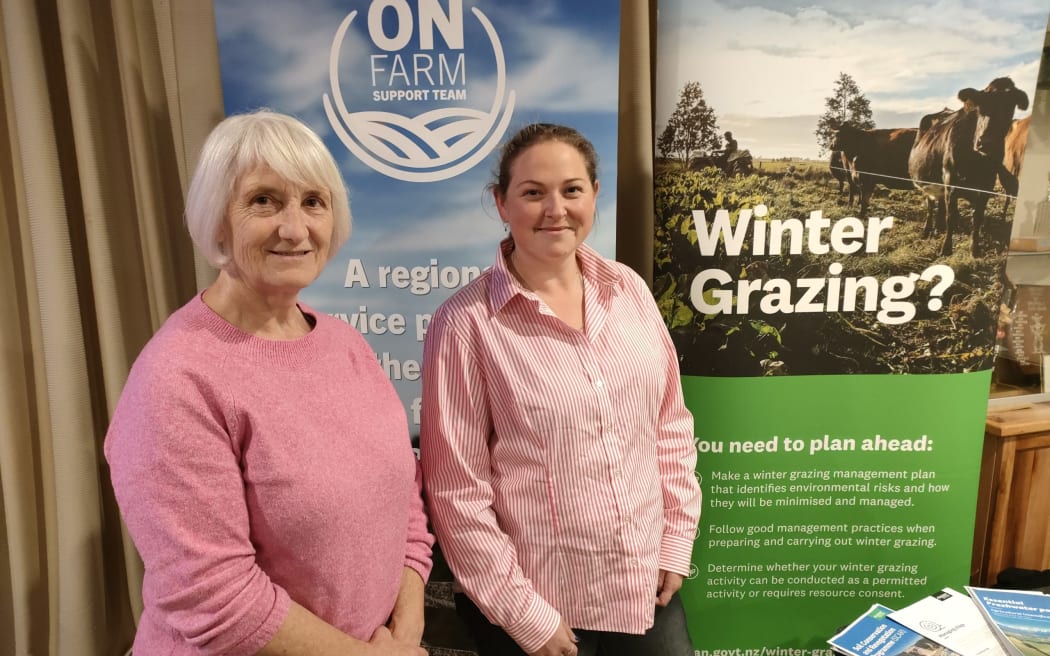
Environment Canterbury’s Waimakariri land management advisor, Anna Veltman (left), and principal farm systems advisor Sarah Heddell were on hand to offer advice on winter grazing at a farmers meeting in Oxford last week. Photo: David Hill / North Canterbury News
Most Waimakariri farmers are complying with winter grazing rules, Environment Canterbury says.
The regional council has completed flyovers of farmland in the Waimakariri district over the last two winters to check on winter grazing practices.
Waimakariri land management advisor Anna Veltman said the results had been largely positive.
Environment Canterbury staff visited farms to address any issues identified and to offer assistance.
''We visited a few farms with issues in the first season and on our follow up visits this year we found the paddocks were fine,'' she said.
''We make phone calls to individuals and talk about what we've seen and ask 'does that sound like your paddock?'.''

One farmer was using virtual fencing with collars on the cows, which cannot be seen from the air, she said.
While there were initial fears of ''spying'' on farmers, Veltman said no photos were taken during the flyovers.
''We fly over and look at paddocks all over the district.
''We might go close to the river on one flight and change it to a different flight path for the next fly over.''
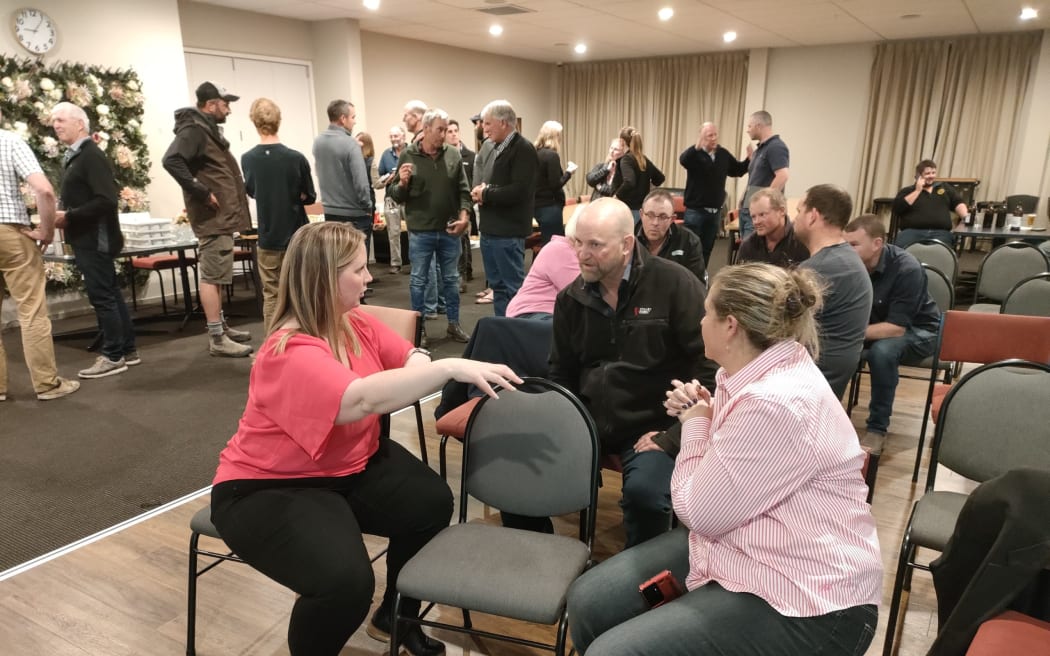
More than 50 farmers and industry representatives turned out at the Oxford Working Men’s Club last week to talk about winter grazing regulations. Photo: David Hill / North Canterbury News
She said Environment Canterbury had worked closely with a stakeholder group of farmers and sector representatives to ensure the programme was beneficial to the sector.
Most farmers were grazing strategically towards water ways, creating buffer zones, placing water troughs and feeders close to new breaks, avoiding paddocks with water ways and wetlands, and grazing with smaller mob sizes, she said.
Environment Canterbury principal farm systems advisor Sarah Heddell, herself a farmer, acknowledged the regulations were complex.
The regulations required farmers to apply for a consent if they had ''critical source areas'' around water ways in their paddocks and slopes with a 10 percent or greater gradient.
''Keeping off slopes could be an option if you don't want to worry about a consent,'' Heddell said.
Under Plan Change 7 to the Canterbury Land and Water Regional Plan, land use consents were required for all farms 5 hectares or larger.
Farmers under Waimakariri Irrigation Ltd's scheme were covered by its consent, but may still require a winter grazing consent.
Heddell encouraged farmers to seek advice when applying for a consent.
Freshwater farm plans were being rolled out around the country, but were not due to be rolled out in Canterbury until 2025.
The plans were a tool designed to stop further decline in freshwater quality, make water quality improvements within five years, and begin to reverse past damage to waterways.
More than 50 farmers and industry representatives turned out at the Oxford Working Men's Club to hear from speakers from Environment Canterbury, the Ministry for Primary Industries, DairyNZ, Waimakariri Irrigation Ltd and the Waimakariri Landcare Trust.
Local Democracy Reporting is Public Interest Journalism funded through NZ On Air
